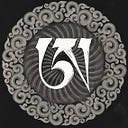FutureScapes:
The Future of Business
Interview with contributing author
Paul Dion Brooks
FutureScapes is a project of Rohit Talwar and Fast Future
What is the focus of your chapter in The Future of Business?
On the surface, to emphasize that a business should be open, dynamic, and scalable appears to be cliche. The deeper meaning behind these terms will transform business as we know it. It is 3 parts in one system, a whole systems approach to cultural design. The end to the mater is full decentralization. What we are coming to is a needs based economy wherein the creation of value is more important than the creation of profit. We all know that we can’t eat gold, and for paper money we could say the same, so then, what is value and how is it created? This is precisely the task at hand.
To have a business be open, dynamic, and scalable is to set parameters for participation and then all people who agree to work within those parameters are allowed to participate. The more innovative work they do, the more value they create for themselves and the business. Some examples are Assembly, Lazooz, and Tsu.
Tell us a little about yourself and what you do?
My foremost interest is in discovering the nature of mind. Although this may be most relevant under any circumstance, my secondary interest is in social architecture and building community and value. I spend most of my time working with groups to envision the future of community and culture.
What future-oriented topics or issues are you focusing on currently?
Social Architecture. In the future business is decentralized. The management is decentralized, the ownership is decentralize, and even the money, by its very nature, is decentralized. We now see systems like Holocracy and Sociocracy and Spiral Dynamics used more. We are begining to see more decentralized economic platforms through software development such as Ethereum. Crypto-currencies have only just arrived and we are now finding clever ways to use them through hubs like Swarm . Communities like OpenBazaar , and Bitnation are at the forefront of this “Neccessary Revolution”. Two fundamental aspects of this emerging economic paradigm are the the dissolution of ownership, and the creation of value as distinguished from profit and even from fiat currency. What would Google look like if it’s market value evaporated and it’s owners reestablished it as a user owned cooperative?
If you could bring about one change in the world to ensure a positive future — what would it be?
3D printing, augmented reality, wearable technology, and blockchain innovation are parts of our evolution. However, the only thing will save us from ourselves is the realization that we are all one human family. If I could bring about one change in the world to ensure a positive future, it would be to reinvent land tenure. Land ownership and the accumulation of wealth through the exploitation of Earth and labor is a crime against both. When Earth has been returned to its people, and rents are no longer demanded as a prerequisite to exist, only then will we have true progress.

